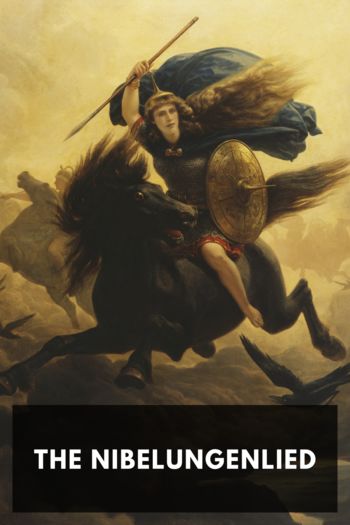The Trials of Radclyffe Hall, Diana Souhami [best sales books of all time .TXT] 📗

- Author: Diana Souhami
Book online «The Trials of Radclyffe Hall, Diana Souhami [best sales books of all time .TXT] 📗». Author Diana Souhami
They left London on 1 September. Una loved these journeys: ‘the fun of the communicating first class single wagons lits with our dogs and all our impedimenta. Breakfast in the dining car, the galettes, croissants and rusks in a basket, the little pots of honey and jam’.
In Paris they ordered a mass for Ladye at the Cathedral of Notre-Dame and searched the dog shops for a perfect griffon. In Genoa at the Hotel Miramar, Una took to her bed with ‘external piles’. At Levanto they swam in the sea and went to the casino where John gambled while Una watched. Romaine again tried to entice them to Capri. Their apartment would look out over terraced gardens, it was secluded, all the furniture in it was made by local craftsmen, they could breakfast on the lawns, the weather was perfect. ‘My plans depend somewhat on yours’, she said.
John resisted. In Florence Una was triumphant, alone with the only person she cared about, in her favourite city: ‘We had both of us visited Florence and loved it in the past, but that was a very different thing from discovering all its joys and beauties in the company we both liked better than any in the world: that of each other.’
Ladye was usurped and Mrs Leonard’s mediation neither needed nor desired. They stayed at the Hotel Albion by the River Arno and the Ponte Vecchio. John worked at Octopi and Una read each day’s work aloud. They admired the bands of Fascisti ‘swinging along the streets’, went to mass at San Michele, their favourite church, ‘adored the frescoes’, walked by the Arno in moonlight, drove to Bellosguardo for the views. Una’s Italian was fluent, John had with her The Little Help-Mate in Italy with such phrases as ‘I will wear my green coat and my nankeen pantaloons.’ At Christmas they lay in bed listening to the church bells through the open windows. John gave Una a large sapphire ring which from then on she always wore. Una gave John malachite cufflinks.
They were away four months. In a final letter Romaine again regretted that they had not gone to Capri but arranged to fetch them from the Hotel Normande in Paris on 9 January 1922 ‘in open motor’:
We could lunch together chez moi if you don’t mind things done in no usual fashion. I strongly hate servants; see them as little as possible … Such a thing as a well-trained butler would send me mad. After luncheon to the studio, t’other side of river …
I do so want you to meet my great friend here Natalie Barney. René de Gourmont wrote his Lettres à l’Amazone to her and she has written several volumes of aphorisms and poems. She has an unusual mind of the best quality. We have been reading lately a great deal of Freud, Jung and D. H. Lawrence (not his novels), also James Joyce the new literary movement which explains and makes one more tolerant of the new art movement. Lawrence’s Classical American Literature is a philosophical treatise, a chef d’oeuvre and very unlike what the title might lead one to expect, but perhaps you know it.
Natalie Barney was known more for her seductions of women and her flouting of convention than for her aphorisms and poems. She epitomized the sexual candour of Paris between the wars. In her Temple of Friendship in her wild garden at 22 rue Jacob lesbians gathered, ‘Paris ones and those only passing through town’. Like Romaine, she was rich, American and in her mid-forties. She organized the Académie des Femmes as a counterpart to the all-male Académie Française. Friday was her salon day when dazzling people gathered. ‘I have perhaps got more out of life than it contains’, she said of herself when old.
Radclyffe Hall drew courage from women like Romaine Brooks and Natalie Barney with their inherited money, artistic success, intellectual confidence and openness about sex. Through them she moved toward self-expression. But she lacked their ease. In much the same way as she kept a distance from feminism and the suffragette movement, she equated Paris and modernism with gimmick and fashion. Stylistic innovation was not her thing. It was symbolic that she collected old oak even if she did then put it in store. She liked accessible narrative, devotional paintings and portraits of her relatives. The only mould breaker for whom she truly had time was herself. In the Hôtel Normande Una read aloud The Bible and Early Christianity and The Soul of an Animal.
With Una as her wife, Radclyffe Hall took for herself the old patriarchies. She invaded the domain of men. Her clothes, manners and adopted name asserted their power. She hired and more often fired the servants. She sailed the Channel in a first-class cabin. If men crossed her, she sued them in the male courts. Order and control she perceived as masculine. Even her handwriting, formerly rounded and tilting to the left, now sloped to the right in angular script. When her watch gained one and a half minutes in four weeks, it was returned for its imprecision.
This carapace of attitude shielded the persona attacked by her mother, abandoned by her father and violated by Alberto Visetti. Vulnerability and the dreaded name of Marguerite she perceived as female. So were friendship, love, feelings and the tyranny of need. The flip side of ‘masculine’ strength was ‘feminine’ weakness. Una’s sycophancy kept the illusion of control intact, though Una had none of the vulnerability John desired to conceal.
Back in London they moved into 10 Sterling Street. It was a small house and crowded out by the grand piano, eight-foot-long





Comments (0)